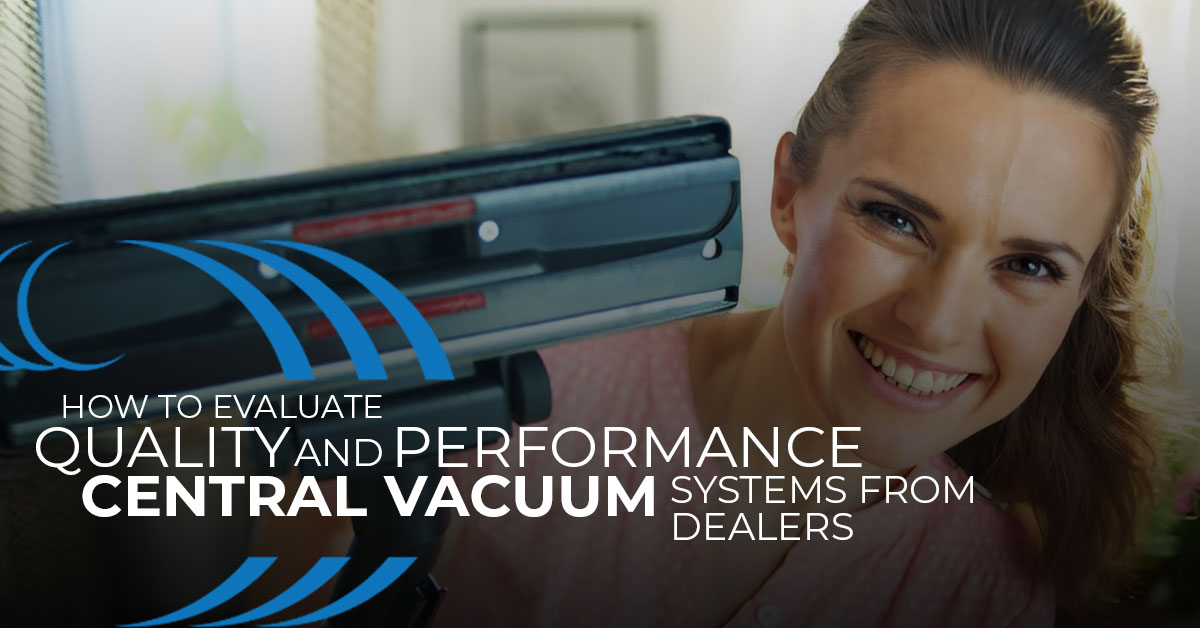
Boosting Productivity in Office Buildings with Central Vacuum
In today’s fast-paced work environment, maintaining a clean and organized office space is crucial for productivity. Office buildings often struggle with keeping their premises clean

When it comes to choosing a central vacuum system for your home, evaluating its quality and performance is crucial. With so many options available from different dealers, it’s important to know how to assess these systems effectively. In this article, we will discuss the steps you can take to evaluate the quality and performance of central vacuum systems from dealers, ensuring you make an informed decision.
Suction Power: One of the key factors in evaluating the quality of a central vacuum system is its suction power. Look for systems with high airwatts (AW) ratings, as this indicates greater suction power and better cleaning performance.
Filtration System: A good-quality central vacuum system should have an efficient filtration system. Look for models with HEPA (High-Efficiency Particulate Air) filters, which are designed to trap even the smallest particles, allergens, and dust mites.
Build Quality: Examine the construction and materials used in the central vacuum system. Look for durable components that can withstand regular use and last for years to come.
Noise Level: Consider the noise level of the central vacuum system. Look for models that offer sound-dampening technology or insulation to minimize noise during operation.
Warranty: Check the warranty offered by the manufacturer or dealer. A longer warranty period indicates their confidence in the product’s quality and reliability.
Airflow: The airflow rate of a central vacuum system determines its cleaning efficiency. Look for systems with high airflow rates, as they can effectively pick up dirt and debris.
Coverage Area: Consider the coverage area of the central vacuum system. Different models are designed to cover different square footage, so choose one that is suitable for the size of your home.
Attachments and Accessories: Evaluate the range and quality of attachments and accessories offered by the dealers. Look for tools like motorized brushes, crevice tools, and upholstery brushes that enhance the versatility of the system.
Installation Process: Find out about the installation process and any specific requirements. Dealers who offer professional installation can ensure proper setup and functionality of the central vacuum system.
Customer Reviews: Read customer reviews and ratings to gain insights into the performance and satisfaction levels of central vacuum systems from different dealers.
When evaluating central vacuum systems, keep an eye out for these important features:
Cyclonic Technology: Central vacuum systems with cyclonic technology use centrifugal force to separate dirt and debris from the airflow, maintaining consistent suction power.
Bagless Design: Bagless central vacuum systems eliminate the need for disposable bags, which can be more convenient and cost-effective in the long run.
Automatic Dustpan: Some central vacuum systems offer an automatic dustpan feature that allows you to sweep dirt directly into an inlet located at the baseboard level.
Smart Integration: Look for central vacuum systems that have smart integration capabilities, allowing you to control the system through mobile apps or voice commands.
Remote Control: Certain models come with remote controls that allow for easy operation and convenience.
To choose the right central vacuum system, follow these steps:
Research: Gather information about different central vacuum systems available from dealers. Compare their features, specifications, and customer reviews.
Consider Your Needs: Assess your specific needs, such as the size of your home, types of surfaces, and desired features. This will help you narrow down the options that best fit your requirements.
Consult with Dealers: Reach out to central vacuum system dealers and ask for recommendations based on your needs. They can provide expert advice and suggest suitable models.
Request Demonstrations: Request demonstrations or virtual tours of the central vacuum systems from dealers. This will give you a better understanding of their functionality and performance.
Consider Longevity: Consider the durability and longevity of the central vacuum system. A reliable system will provide years of efficient cleaning without frequent breakdowns.
By evaluating the quality and performance of central vacuum systems from dealers, considering important features, and following a systematic approach, you can choose the right system that meets your needs and provides excellent cleaning performance for your home.
Understanding airwatts in central vacuum systems, along with other factors discussed in this article, will empower you to make an informed decision and invest in a high-quality central vacuum system that enhances your cleaning routine and contributes to a cleaner, healthier living environment.

In today’s fast-paced work environment, maintaining a clean and organized office space is crucial for productivity. Office buildings often struggle with keeping their premises clean

Central vacuums in animal shelters & vet clinic: Explore how these systems boost hygiene, efficiency, and air quality.

In the world of home entertainment, a home theater is a luxury that many homeowners dream of. It’s an immersive experience that brings the magic

A central vacuum system is a significant investment that promises convenience, powerful suction, and improved indoor air quality. However, choosing the right central vacuum hose
Our home automation products are at the forefront of technology, offering a blend of convenience, security, and efficiency. As a Homewave dealer, you’ll be part of a network transforming homes into smart, futuristic spaces.
Embark on this rewarding journey with us and leverage the power of innovative technology.
Please fill out this form and become a Homewave Dealer.